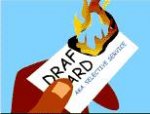Can you suggest one? To be honest, I doubt it'll change the views on role-playing that I've formulated over the past 20 or so years, but I admit to being fascinated by opinions that run so contrary to my own.I suggest reading a book on the subject.
Are you agreeing with me that RPG play resembles fiction, at least enough so as to share certain terminology?RPGs resemble any kind of simulation because simulation is designed to resemble something else.
No one is arguing this, either. Relevance?No one is really killing elves in D&D the same way they are not really buying property in Monopoly.
This is another example of generalizing the meaning right out of a word, in this case, the world "fiction". Do I really need to demonstrate that all simulations are not fiction? OK, a computer weather simulation is not fiction. Happy?All simulation is fiction.
When we write a story, alone or collaboratively, we are inventing events, in real-time, on the spot, so to speak, etc.When we tell a story we are relating events.
A story is being created.When roleplaying no actions are predetermined for the roleplayer so no story is related.
A story (ie fiction) is the process of being written is still a story. It still possess definitive, story-like qualities. Which, I might add, are shared by RPG play, hence my use of them when discussing D&D.Story is the RE-telling of events.
And yet we roll so many little dice...But roleplaying exercises go out of their way to ensure you don't have to stop roleplaying when playing them.
Would these books be about role-playing gaming, or about role-playing in other contexts/disciplines? All role-playing is not the same.And if you go read a book about roleplaying you will see roleplaying = training.
I game to play fictional characters in adventures stories. I'm not practicing to anything, except perhaps funnier and more imaginative. I've never met anyone outside of you, how, that saw RPG play as a form of training.In RPGs with fictional roles like World of Warcraft as you mention and D&D it is practicing to be a fighter in a fantasy world. Or a spellcaster. Or a cleric. etc.



